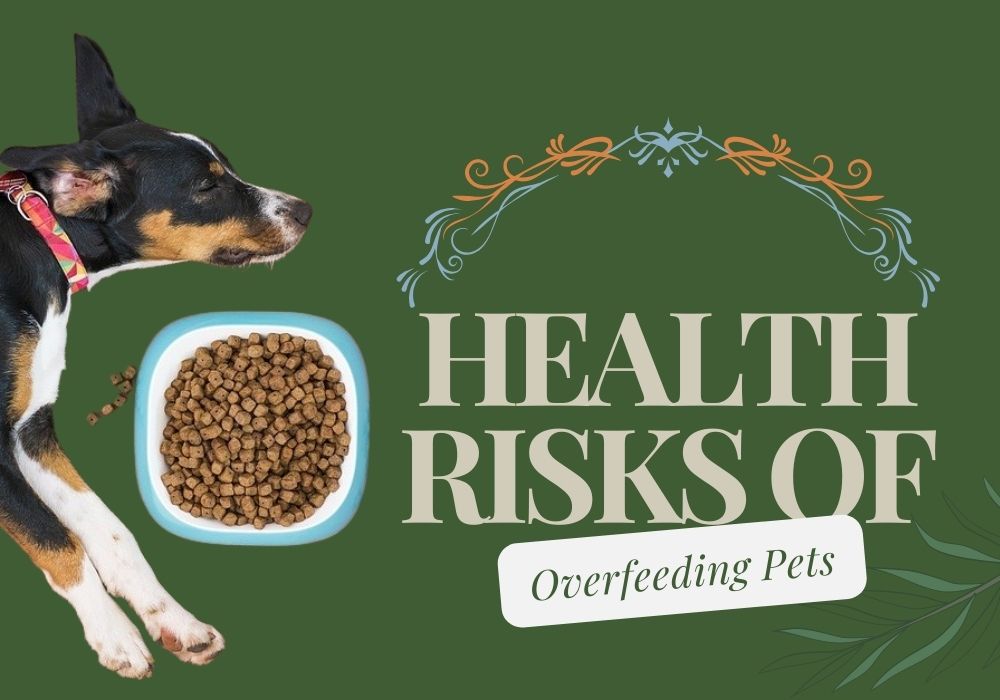Overfeeding pets is a common issue among pet owners who believe they are showing love through abundant feeding. However, this practice can have serious health implications for pets. Ensuring a balanced diet is crucial for maintaining their health and well-being. This article explores the dangers of overfeeding pets, the associated health risks, and tips for preventing pet obesity.
1. The Health Risks of Overfeeding

- Obesity
Obesity is the most apparent and immediate consequence of overfeeding pets. Just like in humans, excessive weight in pets can lead to a multitude of health problems. Obesity in pets can cause:
- Joint problems and arthritis
- Diabetes
- Heart disease
- Respiratory issues
According to the Association for Pet Obesity Prevention, an estimated 60% of cats and 56% of dogs in the United States are overweight or obese. This alarming statistic highlights the need for pet owners to monitor their pets’ weight closely.
- Diabetes
Pets, especially cats, are susceptible to diabetes when overfed. The constant intake of high-calorie foods, particularly those rich in carbohydrates, can lead to insulin resistance. Diabetes in pets requires lifelong management and can significantly reduce their quality of life.
- Joint Problems
Excess weight puts additional strain on a pet’s joints and bones, leading to arthritis and other mobility issues. Overweight pets often struggle with everyday activities such as walking, running, and climbing stairs, leading to a sedentary lifestyle that exacerbates the problem.
- Shortened Lifespan
Research indicates that overweight pets have a shorter lifespan compared to their healthy-weight counterparts. The myriad health issues caused by obesity contribute to a reduced quality of life and an increased risk of early death.
2. Preventing Overfeeding and Maintaining a Healthy Diet

- Portion Control
One of the most effective ways to prevent overfeeding is to control portion sizes. Consult your veterinarian to determine the appropriate amount of food for your pet based on their age, size, and activity level.
- Regular Exercise
Regular physical activity is crucial for maintaining a healthy weight. Engage your pet in daily exercises such as walks, playtime, or agility training to keep them active and fit.
- Balanced Diet
Ensure your pet’s diet is balanced and nutritionally adequate. Avoid feeding them high-calorie treats and human food, which can contribute to weight gain. Opt for high-quality pet food that meets their dietary needs.
3. Monitor Weight

Regularly monitor your pet’s weight and body condition. Schedule routine check-ups with your veterinarian to track their health and make necessary adjustments to their diet and exercise regimen.
4. Treats in Moderation

Treats should be given sparingly and should not constitute more than 10% of your pet’s daily caloric intake. Use treats as rewards for good behaviuor rather than a regular part of their diet.
Conclusion
In conclusion, while it may be tempting to show our affection for pets through extra treats and generous portions, overfeeding can have serious consequences on their health and well-being. Obesity, diabetes, joint problems, and heart disease are just some of the health issues that can arise from overfeeding. It’s crucial to provide a balanced diet appropriate for your pet’s age, size, and activity level, and to consult with a veterinarian for guidance on proper feeding practices. By monitoring your pet’s weight and ensuring they receive adequate exercise, you can help them lead a healthier and happier life. Remember, the best way to show love to your pet is by ensuring they stay healthy and fit.
FAQs
What are the dangers of overfeeding pets?
Overfeeding can lead to obesity, which increases the risk of diseases such as diabetes, heart disease, and arthritis.
What are the health risks associated with pet obesity?
Obesity in pets can lead to serious health issues like diabetes, heart disease, respiratory problems, and joint problems.
What are the signs that my pet is being overfed?
Rapid weight gain, difficulty in moving around, and shortness of breath are common signs of overfeeding.

